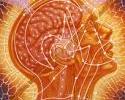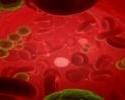Understanding the symptoms of obsessive-compulsive disorder (OCD), what causes them and what can aggravate them is key to leading a healthy, normal life despite the condition.
OCD is usually diagnosed when obsessions and compulsions have become time consuming, cause significant distress and interfere with daily life.
Where Does OCD Stem From?
The symptoms of OCD arise from a combination of both biological and environmental factors. Obsessions are involuntary, seemingly uncontrollable thoughts or impulses that occur over and over again in a person's mind. Inside the brain of a person with OCD, fears or worries get “stuck” and the person is unable to stop thinking about them. These obsessive thoughts are often disturbing and distracting.
Those who suffer from OCD also experience compulsions, which are behaviors or rituals that a person feels they must repeat again and again. Usually, compulsions are performed as an attempt to make obsessions go away. For example, a person afraid of contamination might develop elaborate cleaning rituals. However, the relief that these compulsions provide is only temporary, and the obsessive thoughts usually return.
What Is OCD Like?
Many sufferers of OCD have described the thoughts and fears as “noise” inside their heads that they cannot escape or turn off. When in school, people with OCD are frequently unable to pay attention in class because their mind finds itself occupied with this “noise.”
Many times these obsessions and compulsions can be hidden from loved ones and family, and OCD sufferers may find themselves suffering in silence until their symptoms worsen. In many cases, obsessions can shift from one focus to another over time. At the same time, it is also normal for OCD sufferers to have more than one obsession or compulsion. OCD symptoms can wax or wane over time, and it is therefore quite normal to see sudden improvement followed by rapid deterioration.
What to Look out For
Here are some of the most well known obsessions, compulsions and rituals found in people with OCD:
- Washers: These people are afraid of germs and contamination, and they usually have cleaning or hand-washing compulsions. Some compulsions associated with this are: repeatedly washing hands and/or bathing, excessively changing and/or washing clothes, avoiding touching “dirty” surfaces, avoiding touching others, and avoiding public places, especially restrooms.
- Checkers: These people repeatedly check things that they associate with harm or danger. Some examples are: checking doors and windows, making sure the stove or other similar appliance is turned off, checking on parents or other loved ones to make sure they are okay, and unreasonable avoidance of ordinary places, objects, situations, animals or people that may trigger fears of harm.
- Doubters and sinners: These people are afraid that if everything is not perfect or done just right something terrible will happen or they will be punished. Some of the behaviors associated with this are: repeatedly revising the way words are written to make them look “just right,” repeating something until it looks, sounds or feels “just right,” excessive praying to atone for being “bad,” repeatedly confessing perceived “sins” or bad behaviors, and repeatedly asking if something has been done wrong.
- Counters and arrangers: These people are obsessed with order and symmetry and may have superstitions about certain numbers, colors or arrangements. Some examples of this type of behavior are: constantly dividing up items into groups, rearranging items to be in a certain order to prevent harm, getting dressed or eating breakfast in a precise order, counting up to a “good” number, touching or saying words a certain number of times to “magically” keep harm from coming to another, and avoiding “bad” numbers on a worksheet.
- Hoarders: These people fear that something bad will happen if they throw anything away and compulsively hoard things that they don’t need or use. Some related behaviors are: saving useless items like scraps of paper, candy wrappers, bottle caps and broken items; holding on to items that might be needed sometime in the future; buying items in multiples of a certain number; and accumulating items in an area because they are “contaminated.”
Other behaviors found in OCD sufferers are fears, feelings or urges related to homosexuality, which is known as HOCD. People who suffer from this condition will constantly try to reassure themselves of the fact that they are not gay, even though the individual is heterosexual. These individuals will also turn to excessive praying to atone for having inappropriate sexual thoughts and will avoid magazines, TV programs and the Internet for fear of seeing something sexually-related that could arouse them.
Sources: TheHelpGuide.org and OCDEducationStation.org








